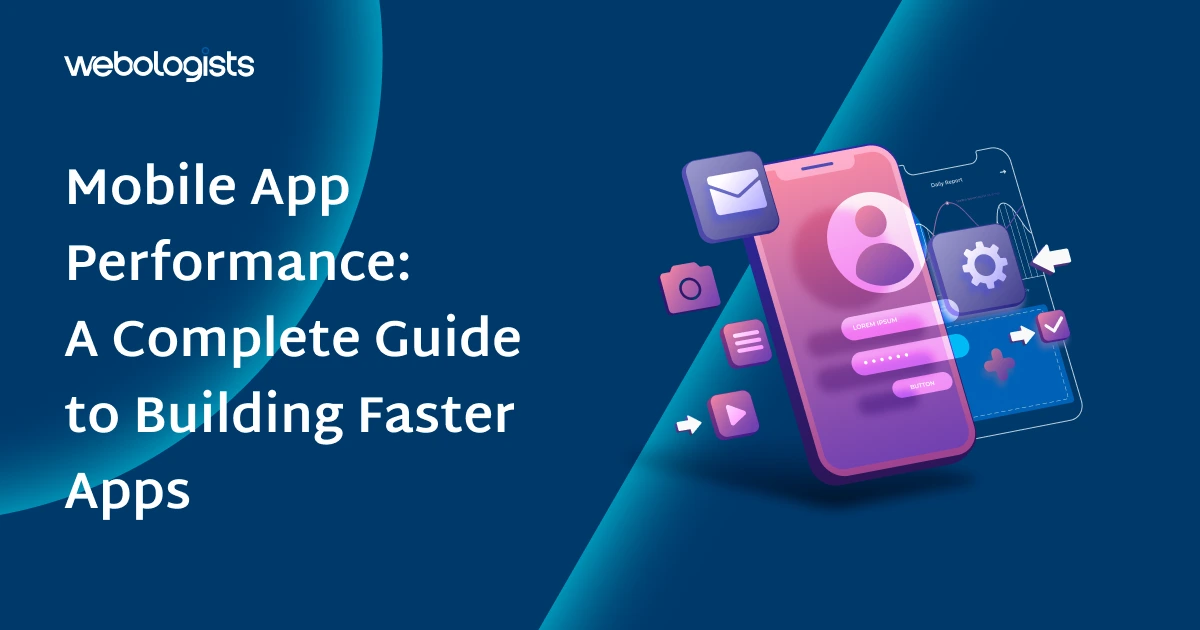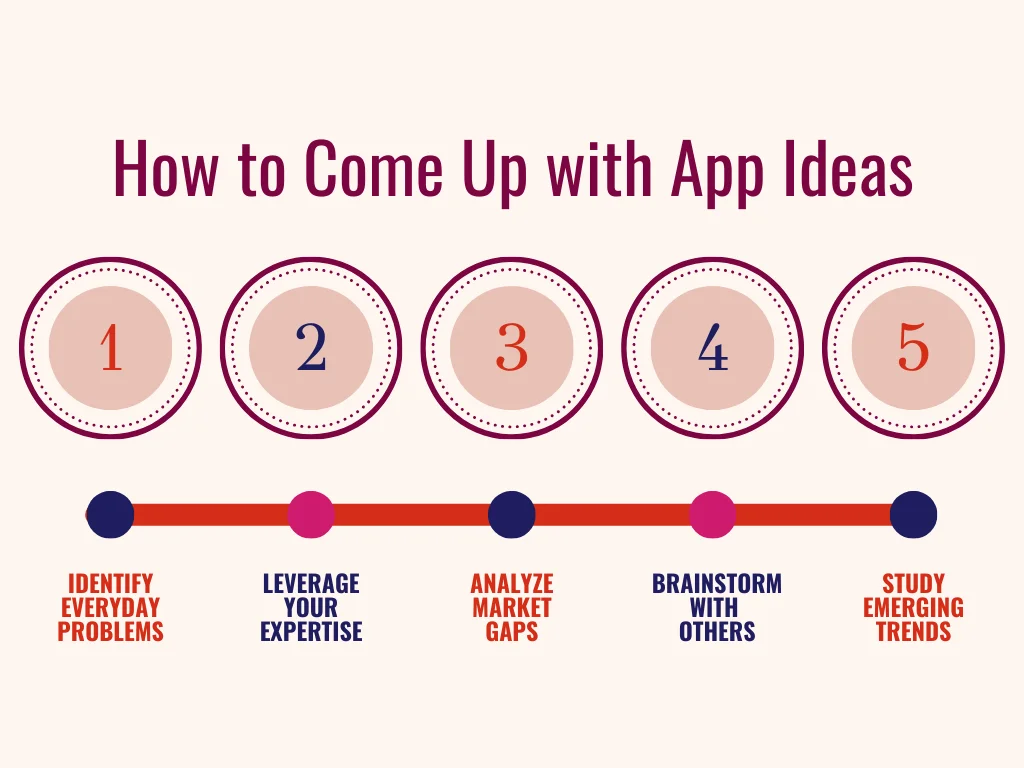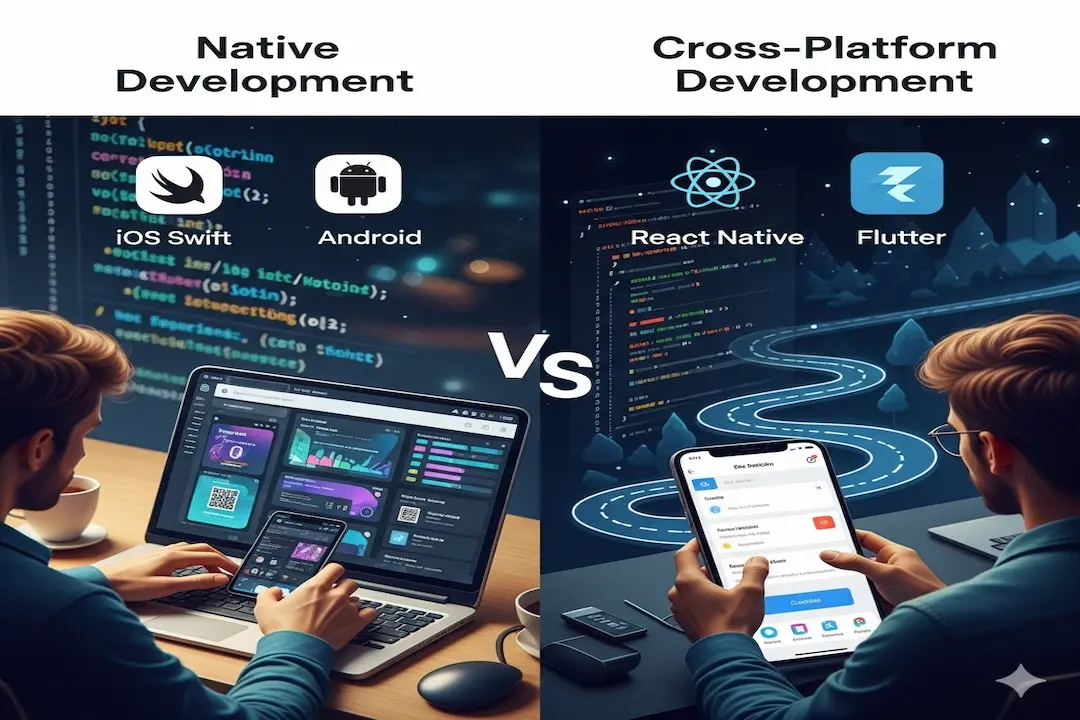
Mobile apps have become a big part of our daily lives. From banking and shopping to social media and fitness tracking, we use apps for almost everything. But here’s a question: what happens when an app is slow, crashes often, or drains your phone battery? We stop using it, right?
For businesses, that’s not just a small issue, it’s lost customers. Many teams now rely on AI-powered monitoring tools that go beyond tracking performance, they can also predict problems before users ever notice them.
In this guide, we’ll look at how to measure app performance, how AI helps, and the steps we can take to make apps faster, smoother, and more reliable
Table of Contents
- 1 Why Mobile App Performance Matters
- 2 The Basics of Mobile App Performance
- 3 Key Metrics to Measure Mobile App Performance
- 4 Struggling with app performance issues?
- 5 How AI Improves Mobile App Performance
- 6 Steps to Improve Mobile App Performance
- 7 Is your mobile app slowing users down?
- 8 Real-Life Example
- 9 Final Thoughts
- 10 FAQs
Why Mobile App Performance Matters
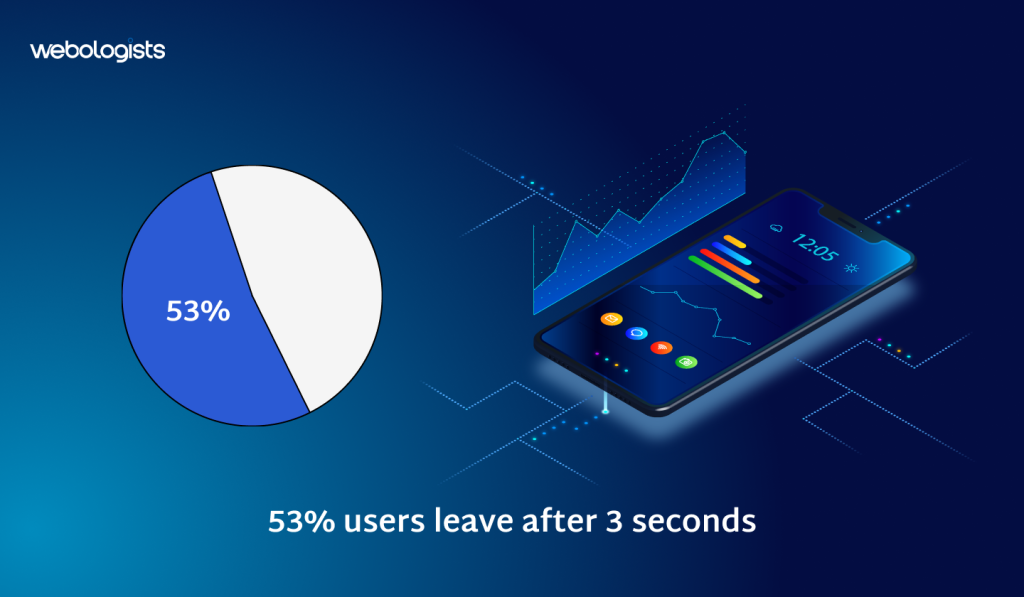
Think about the last time you deleted an app. Chances are it was too slow, froze often, or just didn’t feel smooth. You’re not alone.
- According to Google research, 53% of users leave a mobile site if it takes more than 3 seconds to load. The same logic applies to mobile apps.
- A study by AppDynamics found that 80% of users will only retry an app once or twice before giving up.
In simple terms: every second counts. A small delay can cost you customers.
The Basics of Mobile App Performance
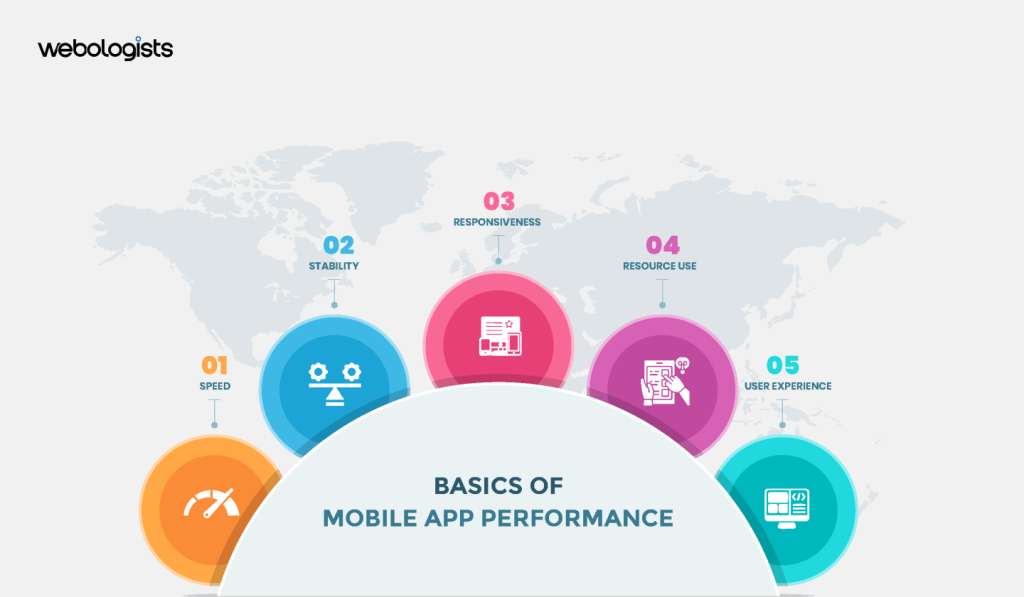
Mobile app performance is about how well an app works when people use it. You’ll discover the simple factors that keep users happy.
- Speed
Speed means how fast the app opens and loads its pages. It also shows how quickly it reacts when you tap or click something.
- Stability
Stability is about how often the app works without problems. Stability means the app keeps running smoothly without crashing or freezing.
- Responsiveness
Responsiveness is the smoothness you feel when using an app. That is what makes each swipe scroll or tap feel smooth and effortless.
- Resource Use
Resource use means how much battery memory and internet the app needs. When apps use fewer resources, they work more smoothly and stay reliable over time.
- User Experience
User experience is about how simple and enjoyable the app is to use. If it feels easy people are more likely to keep using it.
Improving app performance means more than just making it faster. It also means focusing on stability smart use of resources and giving users a seamless experience.
Key Metrics to Measure Mobile App Performance
We can’t improve what we don’t measure. That’s why tracking right metrics is first step. Here the most important ones
| Metric | What It Shows | Why It Matters |
| Load Time | How long app takes to open | Long loading time makes users uninstall |
| Crash Rate | How often app stops working | Too many crashes lower trust and ratings |
| Responsiveness | Delay between tap and response | Even 1-second delay hurts satisfaction |
| Battery Consumption | Energy used while running | High use makes people uninstall |
| Data Usage | Amount of internet data used | Heavy use costs users money |
| Retention Rate | How many return after first use | Shows if app keeps people engaged |
These metrics give a clear picture of how an app performs. Today, most experts use machine learning to study them in real time.
Struggling with app performance issues?
We’ll cut crashes, improve speed, and keep users engaged.
Claim a Free Performance Review Today!How AI Improves Mobile App Performance

AI is reshaping apps to run quicker, feel smoother, and stay more reliable. Here is some factors that improves mobile app performance
- Predictive Analytics
AI studies past app problems and how people use the app. This helps it spot and prevent issues before they even happen.
- Anomaly Detection
By monitoring the app, AI can detect problems like sluggish loading or unusual data consumption, making it easier to fix them right away.
- Smart Chatbots
AI chatbots handle questions directly in the app, giving users quick answers while reducing the strain on the system.
Steps to Improve Mobile App Performance
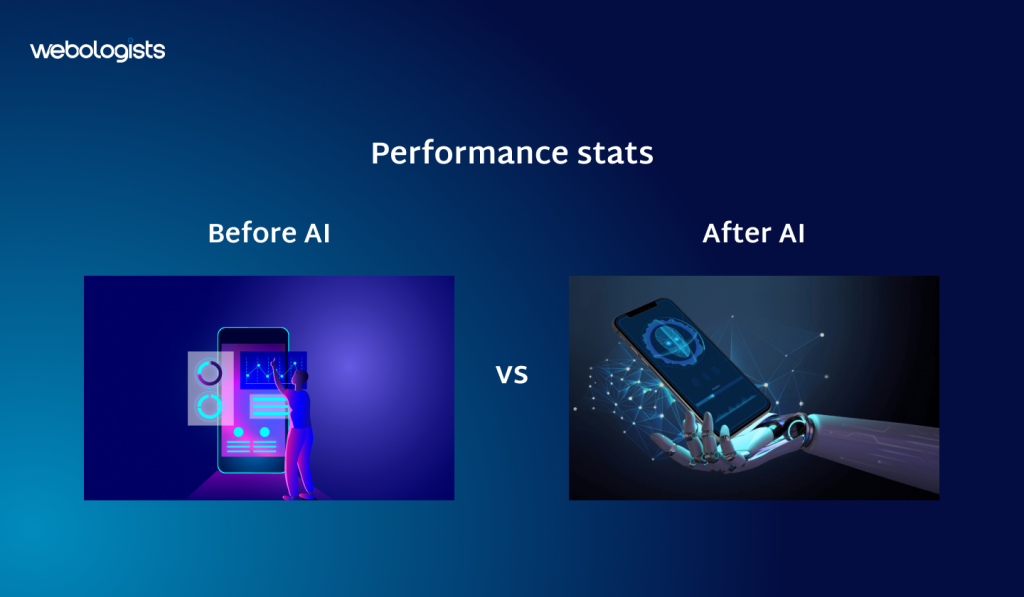
After we see how the app performs, the real work begins fixing the areas that slow it down. Now, let’s explore some tried‑and‑true methods to make your app run faster and more smoothly.
1. Reduce App Load Time
First impressions matter, and with apps, they happen fast. If your app takes too long to open, most people won’t wait; they’ll close it and move on. There are straightforward ways to reduce load time, including:
- Use lighter images and compress large files so they load faster.
- Preload the content people look for first to give them instant access.
- Remove any startup steps.
Take Instagram, for example. It preloads images so they appear almost instantly, even when the internet connection isn’t great.
2. Minimize Crashes and Bugs
Crashes are the number one reason for app uninstalls. To cut them down:
- Test on different devices and operating systems
- Use crash reporting tools like Crashlytics
- Fix high-priority bugs quickly
3. Improve Responsiveness
When users tap, swipe, or scroll, the app should respond right away. A smooth experience keeps people engaged. To make that happen:
- Don’t overload the main thread with heavy tasks.
- Process large chunks of data in the background to keep the app running smoothly without freezing.
- Keep animations light and straightforward for a seamless user experience.
4. Optimize Battery and Data Usage
Nobody likes an app that drains the phone or eats up mobile data. To improve:
- Cut down background activity so your app runs faster without draining the battery.
- Store data locally to help content load instantly.
- Use fewer, more efficient requests to keep the app running smoothly.
5. Focus on User Experience
Keep navigation clear and simple so the app feels easy to use. We should:
- Keep navigation simple so users can find what they need without confusion.
- Write clear, helpful error messages instead of technical codes.
- Design for all screen sizes to give a smooth experience on any device.
- Collect feedback and act on it to show users their input matters.
6. Keep Updates Regular
Mobile systems change fast, and so do user expectations. Regular updates make sure your app keeps up by:
- Fix security issues so people can use the app with confidence.
- Add small but meaningful updates that make the experience better.
- Keep the app compatible with new devices so it always works smoothly.
Is your mobile app slowing users down?
Our experts optimize for speed, stability, and smooth UX.
Claim Your Free App Audit!Real-Life Example
“Take a food delivery app as an example that we developed. It was a hit at launch, but before long, users complained about sluggish checkouts and crashes at peak times.”
By tracking metrics, we found:
- Load time was over 5 seconds
- Crash rate was 3% (too high)
- Battery usage was double compared to competitors
After we optimized image sizes, added caching, and fixed background tasks, load time dropped to 2 seconds, crash rate went under 1%, and battery use fell by 30%. It only took a month for our ratings to rise from 3.2 to 4.4 stars.
We later integrated an AI-based monitoring system that predicted peak hours and automatically adjusted server loads. “Checkout lag dropped by 40%. It’s clear that measuring and improving performance makes a real impact.”
Final Thoughts
When an app is slow or crashes often, users don’t wait. They leave. The smart way is to use AI to keep apps fast, stable, and easy to use. With the right tools, we catch problems quickly. Improve speed. Create experiences that bring people back.
At Webologists, we help businesses use AI to make apps smarter, faster, and more reliable. So you don’t lose users to slow load times or sudden errors. Ready to see how AI improves your app performance? Talk to us today.
FAQs
-
Can AI help reduce the size of my app for faster downloads?
Yes. Some AI tools compress images, videos, and other content. They do it automatically, without losing quality. Makes the app lighter to download.
-
How can I check if my app works well on low-storage phones?
Test on devices with limited memory. Or use tools that copy low storage. Then see how the app reacts.
-
How does AI improve app security along with performance?
AI detects strange login attempts. It blocks fake traffic. Stop bots too. Keeps the app fast and safe.
-
Do app updates affect performance?
Yes. Updates with new features or code can slow down an app. If not optimized, problems grow. So test each update carefully.
-
Can AI show me which app features users don’t like?
Yes. It studies user behavior and feedback. AI highlights features people dislike. Even show what makes them leave or uninstall.


